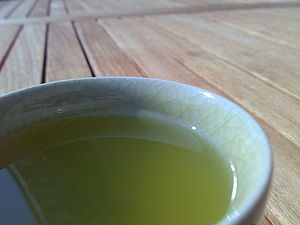Green tea benefits the heart, the circulatory system, the brain, the metabolism, the digestive system and, because of its antioxidant content, all of the cells of the body. Are green tea health benefits overstated? In some cases, the answer is “yes”.
Green tea benefits were first examined because of something called the “Japanese paradox”. It’s a little like the French paradox. Most health experts believe that people who consume large amounts of dietary fat and/or smoke cigarettes are more likely to develop heart disease and cancer. But the incidence of heart disease is low in the French, even though the traditional diet is high in fat. The incidence of heart disease, as well as stomach and throat cancer is low in the Japanese, even among smokers.
After several studies, researchers stated that one of the possible green tea health benefits was a reduced risk of stomach and throat cancer, primarily because the study participants drank a liter or more of green tea every day. After studying French populations, researchers found an antioxidant in red wine called resveratrol. They said that the antioxidant may reduce the risk of heart disease, among other things.
If we combine green tea health benefits with those of resveratrol, we might be able to lengthen our life-spans. Researchers arrived at this conclusion after feeding resveratrol to fish that normally lived for only nine weeks. After dosing a group of the fish with resveratrol, they lived an average of 56% longer than the group that did not receive the supplement. Of course, whether it has the same effect on humans remains to be seen.
If you really want to lengthen your lifespan, you need more than antioxidants. They are a good place to start, because they fight free radical damage, but they do nothing to counter glycation, a complex process caused by sugar molecules binding to protein within the human body. This binding causes a cascade of reactions that lead to the formation of advance glycation end-products or AGEs. The term AGE is appropriate, because these molecules have been implicated in Alzheimer’s, type II diabetes, heart disease, deafness, blindness, cancer and other “age” related diseases. [Read more…]




